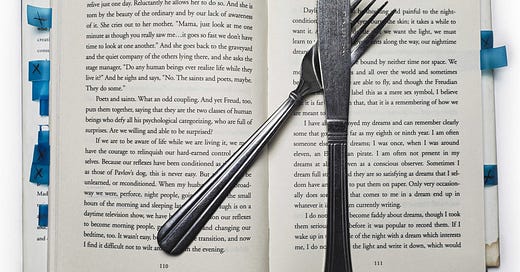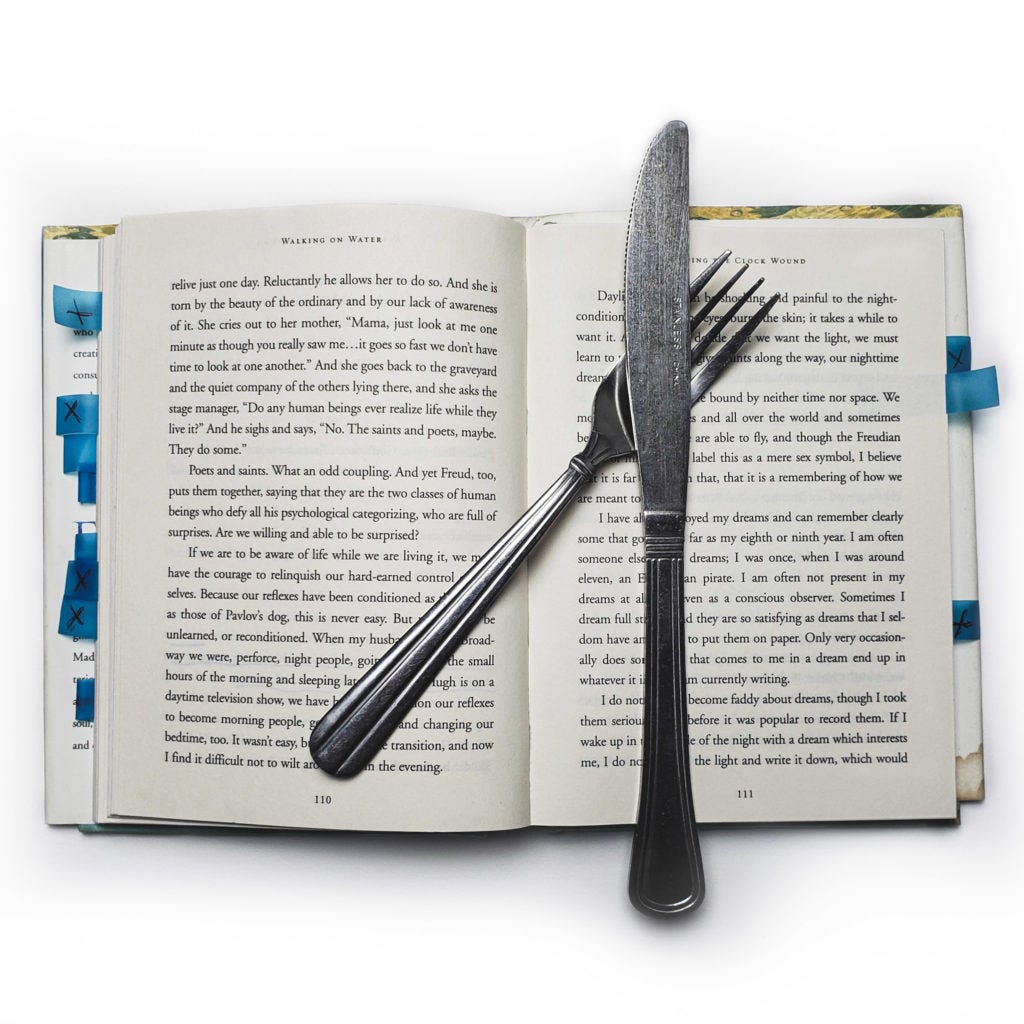A crash, a hope, and a book review...
The way we consume a book says a lot about the book, but it also says a lot about us. Some books we read voraciously, we devour them with a carnivorous fervency because it feeds and satisfies some hungry and hollow part of ourselves we didn’t know was starving.
Some books we take in slowly, nibbling away at them bit by bit, a little at a time because bitter truths are an acquired taste, and our palette is still unaccustomed to the astringent acidity of all that we cannot yet accept or understand. But, oh how we need these books as well.
Some books are so bland and flavorless that the tasteless nothing of their consumption makes them both hard to swallow and difficult to stomach. It’s not that they’re necessarily bad, it’s just that they’re boring, and sometimes that’s far worse. But, even these books, benign, unappetizing, middle-of-the-road, books still teach us something about who we are. The boldness of what they lack, shows us what we crave. The immensity of their under-seasoning can show us the spices that we most desire. Perhaps, they even reveal to us the bland places within ourselves that could use a pinch of salt.
And whether or not we choose to finish reading such a book says something about us as well. Eager for the ecstatic taste of something exciting and exotic, some will easily abandon the spice-less book; you know what you want and you will not settle for less.
Some of us, out of some perplexing sense of duty or obligation, will sit through the entire meal of mediocre book. Perhaps, we feel like a guest, invited to dinner by a welcoming host. We have graciously accepted the hospitality and soon discover at the first bite that the food isn’t good. With reverence we mile politely and finish the meal, we extend the same grace that we ourselves were the recipients of, realizing that being nourished does not require flavor, and that there are other things beyond what is consumed that nourish as well: understanding, community, commonality, and the warmth of another’s presence who knows how you feel. David Brooks writes “shallow food won’t satisfy the deep hunger and fill the deep emptiness that suffering reveals, only spiritual food will do that.”
Juanita Campbell Rasmus’ book Learning to be, is, for me, a bland book, an unappetizing read, that was extended to me graciously. Rasmus is a pastor, a mother, and a wife. She was a workaholic, a perfectionist, and a person tied to the wheel of ambition and ceaseless striving, that is, until what she calls “the crash”. One day she flying through the motions of all the incessant busyness of her goals, responsibilities, obligations, pursuits, and desires, and then it happened; the crushing weight of a crippling and debilitating depression brought on by burn out. She is plunged into darkness and despondency in an instant, and it would be a long, slow, and arduous climb to get out.
I immediately felt a connection to the subject matter of the book. I have experienced both sides of that story. I have been and still am an overly-ambitious workaholic with unrealistically high demands and expectations for myself and my work. I also have and still do suffer from depression. In many cases, the latter is a direct corollary of the former. Even more than that, I have experienced my own instantaneous crash, a moment of sheer, devastating, loss and irreparable damage, a moment of utter and absolute darkness, a moment that wasn’t just a moment but instead a year and a half long experience of night.
I am so acquainted with the experiences she described that I had high hopes for the book. I thought perhaps it might give voice to the silent traumas still lingering in me. I thought that maybe it just might shed some light on the darkened places that I still harbor. But it didn’t.
Rasmus describes the ordeal of “the crash” in great detail. She also writes openly about her path to recovery. And yet, somehow, all the emotional weight of the experience is missing from the writing. Her tone is so prosaic, so distant, and detached, that the reader fails to fully realize just how aggressive and catastrophic a dark night of the soul can be.
I was neither stirred, nor moved by Rasmus’ book. She writes with the voice of one who is well, one who has recovered, and who is far on the other side of “the crash”. She writes of her crash as if it were a distant memory.
Some of us need to hear the voice of one who knows the taste suffering because they still have blood in their teeth. Some of us need to hear truth from someone who is still limping.
Would I recommend Rasmus’ book. Probably not. But, I’m grateful that I read it, grateful that I finished the plate of it’s offerings, and grateful that I chewed the gristle. Rasmus may not have taught me anything new, she may not have said anything I didn’t already know, or hadn’t already heard before, but she offered me a reminder.
She reminded me that when we are scared, small, and lonely, when we are lying desperate in the dark, this is not only when we most need the work of writers, poets, and artists, but this is also when we most need to do the work of artists, writers, and poets. It’s the makers and creators who truly know and understand that hope is not a feeling. Hope is a series of motions and movements that we commit to making everyday. Hope is rarely grand or triumphant, when it is, it is usually a false hope. Hope is the seemingly uninspired monotony of showing up and doing the work. Inspiration is simply the name given to the glimmering whispers of a hope that faintly flickers in the cavernous aftermath of a crash. Hope is what happens each time paper succumbs to the pressure of a pen. Hope is what happens each time canvas finds the strength to stretch out across something solid and stable. Hope is the sound of a voice singing out from the endless expanse of night.
It’s the saddest and most depressing art that brings the most hope because it harbors the most hope. The fact that it exists means that an artist, in the depths of her despair, managed to summon the will to make something, and nothing gives me more hope than that.



